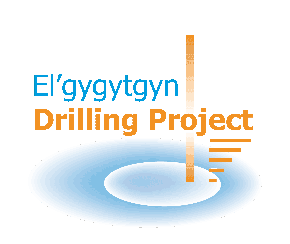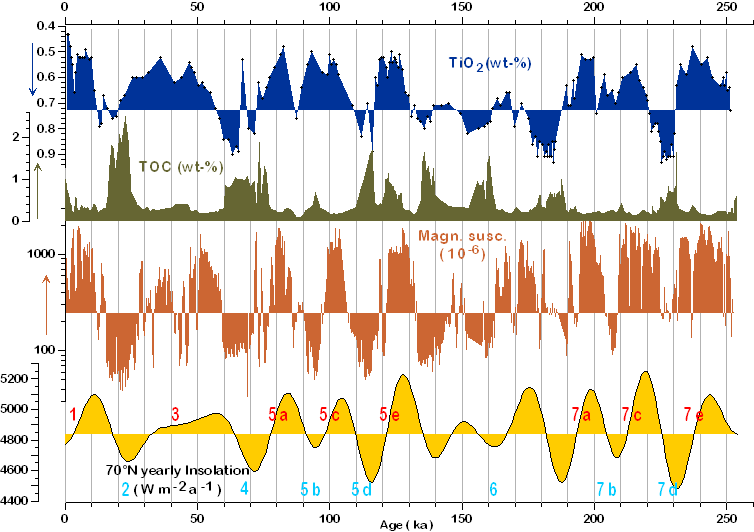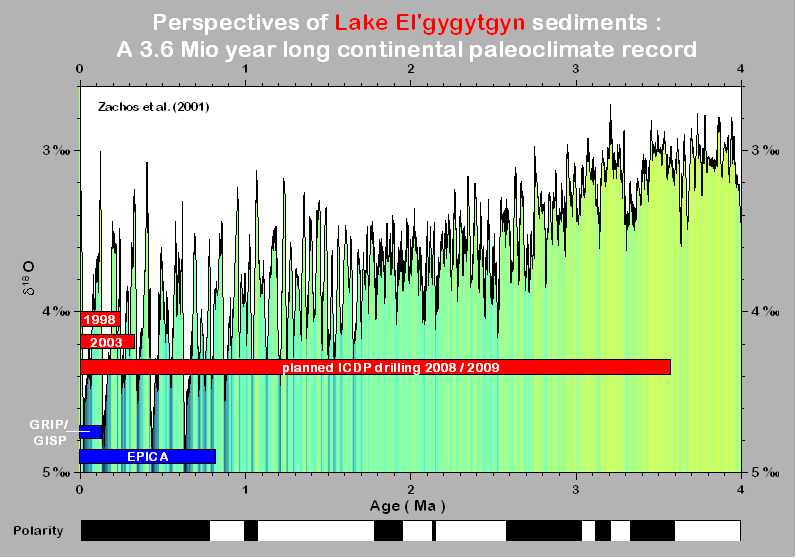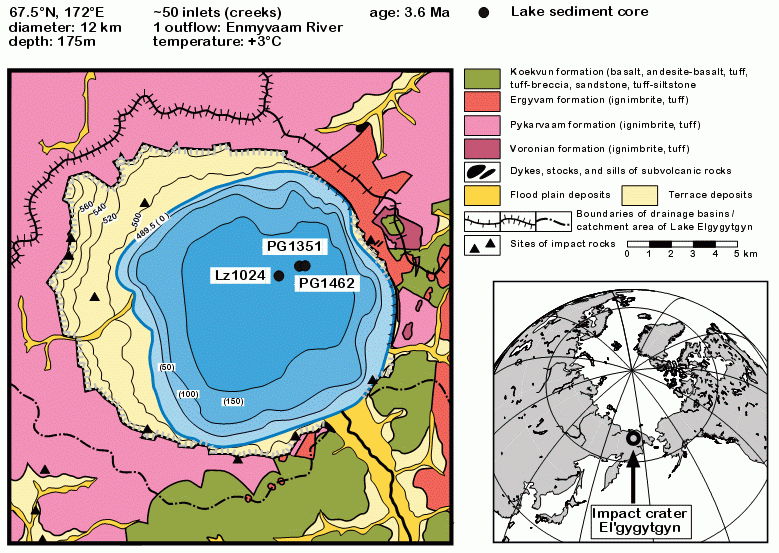
Several joint expeditions by Russian, American, and German scientist mainly in 1998, 2000, and 2003 revealed that the sedimentary record of 12 km wide lake El'gygytgyn (Chukotka Peninsula, Northeast Siberia) filling a meteorite impact crater, has a high potential for a long-term paleoclimate study. The crater of 18 km in diameter was formed 3.6 Ma ago, when an asteroid hit an area of Late Cretaceous igneous rocks. In 2009 a total of 350 m of sediment cores could be recovered from the lake floor within the scope of the ICDP-project Lake El'gygytgyn.
Geology
Multi-disciplinary studies of several pilot cores of up to 16 m length already proved that the lake system is able to record long-term as well as short-term climatic variations reaching back to about 340,000 years (work in progress). Especially the astronomically forced insolation variations caused by precession and obliquity changes of the Earth's rotational axis, and, to a lesser extend, the excentricity of the Earth's orbit, led to major climate changes that triggered two different major states of the lake's water body. Thus glacials (interglacials) are represented by laminated (massiv), anoxic (oxic) sediments with high (low) organic carbon and low (high) concentration of magnetic minerals.
Isolation
According to seismic investigations (c/o AWI Bremerhaven) the crater is filled with about 350 m of sediments. Since the area has not been glaciated during glacials, the pile of sediments is very likely documenting the climate history of the last 3.6 million years. In spring 2009 ICDP drillings recovered this sedimentary archive, also penetrating 200 m into the target rocks of the impact. Permafrost deposits were drilled on-shore in autumn 2008.





